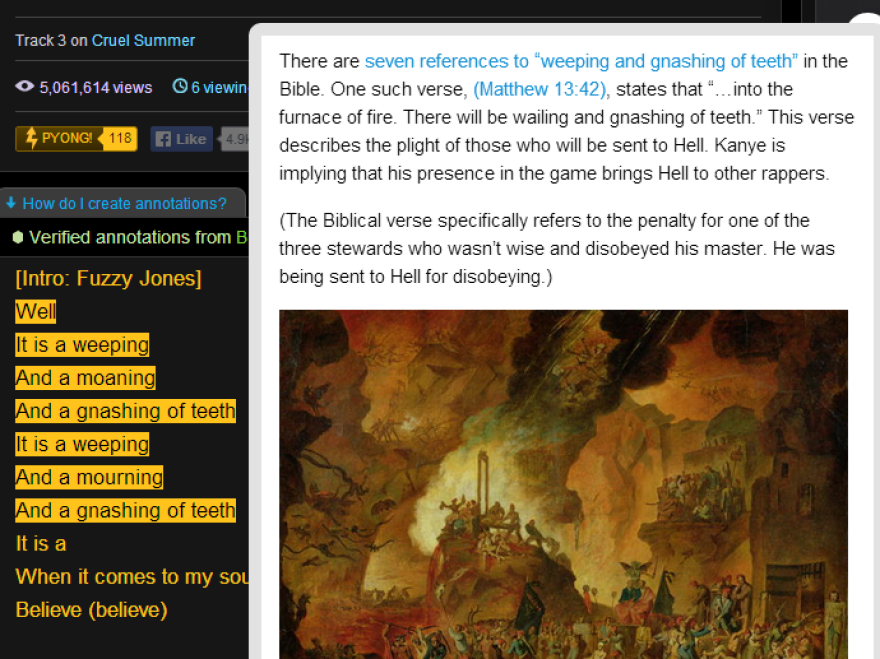Any time a song is popular, you'll find people debating it. And at some point during that debate, someone is going to Google the lyrics.
There are roughly 5 million searches for lyrics per day on Google, according to LyricFind. Those searches often lead to websites that post lyrics to lots of songs — and, in many cases, sites that post ads alongside those lyrics.
David Lowery, frontman and songwriter for Cracker and Camper van Beethoven, is waging war on the sites he believes make money off song lyrics but don't pay the songwriter. Once he took a closer look at where his music was making money on the Internet, he realized: There were more people searching to find lyrics to his songs than searching to illegally download mp3s of his music. And he wasn't making money off those searches. Last November, after months of exhaustive and systematic Googling, he released something called The Undesirable Lyric Website List.
The National Music Publishers Association seized upon this list, and announced that it would be sending take-down notices to every single name. At the top of that list was the very popular Rap Genius.
Rap Genius has been around for a few years, and it's extremely popular. No ads, lots of traffic and, just recently, a major investment from one of the hottest venture capital firms in Silicon Valley. The founder of Rap Genius, Ilan Zechory, says the site doesn't belong on Lowery's list. Because it's way more than just transcribed lyrics. He says the site is more like a social network: a discussion board for music geeks and even some of the musicians themselves — prominent rappers like Nas and Rick Ross — to comment on their own lyrics. Artists, the founders say, love the site.
Just this week, Rap Genius announced that, despite its opinion that the site falls under the criteria for fair use, it's going to pay songwriters for posting their lyrics. It's just easier than fighting with music publishers, who've been very successful at going after other lyric sites in the past few years. Other sites on the list have started paying as well — though Lowery says the payments don't add up to much for him. "I'm a hundredaire," he says. But it's unusual for the Internet to come along and figure out a brand-new revenue stream for musicians: Rather than making money off the music, the Internet has provided a marketplace for just the words.
Copyright 2021 NPR. To see more, visit https://www.npr.org.


